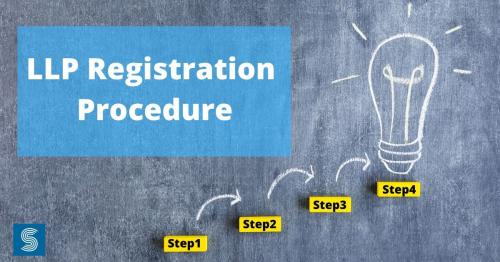Can a Nidhi Company convert into an NBFC?

What is Nidhi Company:
A Nidhi
company belongs to a class of NBFC (Non-Banking Financial Company). Further,
Nidhi Company has been granted an exemption by the Reserve Bank of India (RBI)
regarding registration and legal compliances. The reason behind granting the
exemption is that Nidhi Company is not supposed to deal with anyone then its
members. This company functions to promote the savings of its members. Nidhi Companies
are regulated under the Nidhi Rules, 2014. Registering a Nidhi Company
requires a period of ten to twenty days.
Nidhi
Company collects funds by way of Fixed Deposits (FD), Recurring Deposits (RD)
from its members. Further, this company also lends money against collateral to
its members. Collateral includes shares, Recurring Deposits (RD), Fixed
Deposits (FD), gold, properties, and bonds etc. Nidhi Company is required to
get itself registered with the MCA (Ministry of Corporate Affairs).
Any
person who wants to get its Nidhi Company registered can apply online and can
secure the license for Nidhi Company within a maximum twenty days.
Non-Banking Financial Corporation :
Unlike,
Nidhi Company, other types of Non-Banking Financial Company’s (NBFC) does not
enjoy any exemption from the RBI (Reserve Bank of India) and are stringently
monitored directly by the Reserve Bank of India (RBI). Further, the Non-Banking
Financial Company (NBFC) has to abide by the different rules and regulations
issued by the Reserve Bank of India (RBI) from time to time.
An NBFC or
Non-Banking Financial Company is a Reserve Bank of India (RBI) approved
financial institution registered under the Companies Act, 2013. Free from
banking license, these corporations provide a collection of financial services,
starting from contractual savings to currency exchange; Non-Banking Financial Company’s
(NBFC) has got you covered. Perhaps, that is the main reason behind the mounting
recognition of the Non-Banking Financial Companies. Such companies are a major
contributor to the growth of (BFSI) Banking, Financial Services, and Insurance
sector in India.
Hence, registration of a Non-Banking
Financial Corporation is done under strict rules and regulations
prescribed in the RBI Act.
Why
can’t a Nidhi Company be upgraded into a Non-Banking Financial Company?
Under the
Nidhi Rules, 2014, a Nidhi Company is not permitted to engage in any business
activity other than the prescribed one. Thus, the rules prescribed restrict a
Nidhi Company to engage in the business of other Non-Banking Financial
Company’s (NBFC). Lastly, the basic difference between the Nidhi Company and
other types of Non-Banking Financial Company are as follows –
1. Registration
Required – RBI
registration is not required for the incorporation of a Nidhi Company. While the
other Non-Banking Financial Corporation (NBFC) cannot run without the prior
approval from the Reserve Bank of India (RBI).
2. Capital
Required – A
minimum net worth of rupees ten lakh is required to start a Nidhi Company.
Whereas in the case of Non-Banking Financial Corporation, a minimum net worth
of rupees two crores is required.
Can a Nidhi Company
Apply for RBI Registration, if in case all the Requirements for NBFC are fulfilled?
As
mentioned earlier, the Nidhi Rules, 2014 does not permit a Nidhi Company to
engage in any other business than the prescribed one. Therefore, if in case a
Nidhi Company wants to apply for the RBI registration, it would consider being
an illegal act. The only possible way out would be to permanently wrap up the
Nidhi Company business and commence a new business of any type of Non-Banking
Financial Company (NBFC) after changing the name, legal obligations and
objectives of the Memorandum of Association. But, it is significant to mention
that the above-said way out is neither advised nor realistic.
So,
incorporating a new company is always considered as better over the option of
changing the structure of a Nidhi Company. Further, if any person is already
operating a successful Nidhi Company, then he or she is advised to build a
growth plan and raise the business heights, instead of causing abruption in the
operations of the ongoing Nidhi Company. Following is the procedure to expand
the existing business.
Choose
the type of Non-Banking Financial Corporation – The foremost thing one should do
is to find the type of Non-Banking Financial Company he or she wants to enter. Before
choosing the type of NBFC, one thing which is need to be kept in mind is that
everything is not possible with the single Non-Banking Financial Company. There
are various types of Non-Banking Financial Corporation like Loan Company,
Investment Company, Asset Management Company, and Micro Finance Company.
Create
a New Company – The
next step is to open a new type of company. It can be either a public or a private
company. Further, the type of company is decided considering factors like the scale
of business, number of members etc.
Technical
Parameters and Minimum Investment – Once a company is being registered, the next step is to
invest a minimum amount of capital as per the prescribed requirement of the
chosen NBFC. In case the person wants to commence a Loan Company, then, in that
case, he needs to invest at least a minimum net worth of rupees two crores. Besides
meeting the capital requirement, the person needs to create a robust director’s
profile to impress the Reserve Bank of India. One of the things to keep in mind
that honesty and experience of the proposed directors is the only way out to
impress the RBI. Hence, the RBI takes into concern every caution before issuing
the NBFC license, as the Non-Banking Financial Company deals with the general
public.
Apply
for NBFC license - After
the completion of all the requirements, an application for the RBI approval is
filed at the RBI regional office. A lot of the time is spent in the preparation
and filing of the application. Further, the RBI takes around three to six months
to reply.
Approval
or Rejection of the Application –
After the completion of the due time, the Reserve Bank of India may accept or
reject the concerned application. In the case of rejection, the reasons behind
rejecting the application must be recorded and worked upon appropriately. After,
rectifying all the shortcomings the said application can be refilled with the
Reserve Bank of India again.
Appropriate
expense – This whole procedure will cost around nine to ten lakh rupees,
including government fees.







Comments